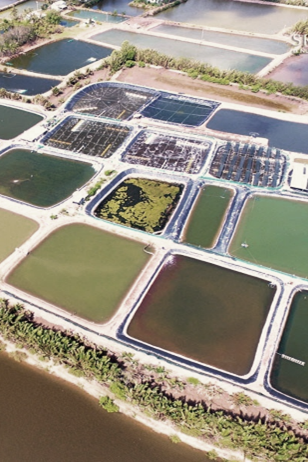Study of solar-driven aquaculture technology in Vietnam
As part of the multi-annual integrated strategy, the Embassy of the Kingdom of Netherlands in Vietnam has taken an active role in facilitating the transition towards sustainable aquaculture practices in Vietnam. A pivotal aspect of this strategy involves the incorporation of renewable energy sources, such as solar power, into farm operations to enhance energy efficiency. In an effort to explore the potential of solar-powered technologies in aquaculture, the Embassy of the Netherlands, in conjunction with the Netherlands Enterprise Agency (‘NEA’), commissioned the study titled “Solar-Driven Aquaculture Technology Vietnam”.
Farmers are facing high productions costs

Aquaculture represents a significant industry in Vietnam, with shrimp and pangasius being exported globally. However, the industry grapples with issues pertaining to environmental and economic sustainability.
The economic challenges faced by Vietnamese farmers are primarily due to the high production costs of aquaculture products. A substantial portion of these production costs are attributed to electricity expenses for farm operation. Aeration, which accounts for 80 to 90% of the total energy use, is crucial for maintaining oxygen levels in the water, thereby ensuring the survival of shrimp and fish. The demand for aeration is particularly high during the night when oxygen levels in the water decrease.
Transition towards net-zero farming
This report elucidates the promising prospects of solar energy for the aquaculture sector in Vietnam. It demonstrates how solar energy can mitigate electricity costs and reduce the carbon footprint of farms, and how it can be combined with other measures to enhance aquaculture efficiency. The report also offers recommendations for future initiatives to support the transition towards net-zero farming.

Practical business cases on solar-driven technology
To substantiate the feasibility and profitability of solar-powered aquaculture systems, the report presents practical business cases. For those interested in understanding the role of solar energy in aquaculture and its potential to reduce the farming carbon footprint, we invite you to download the report from our website: Report: Solar-driven aquaculture technology Vietnam - Netherlands | Rapport | Agroberichten Buitenland
More information
Do you have any questions for the agriculture department? Please send an email to HAN-LNV@minbuza.nl.
For the latest updates, news funding opportunities and more, follow us on Twitter @AgroVietnam.